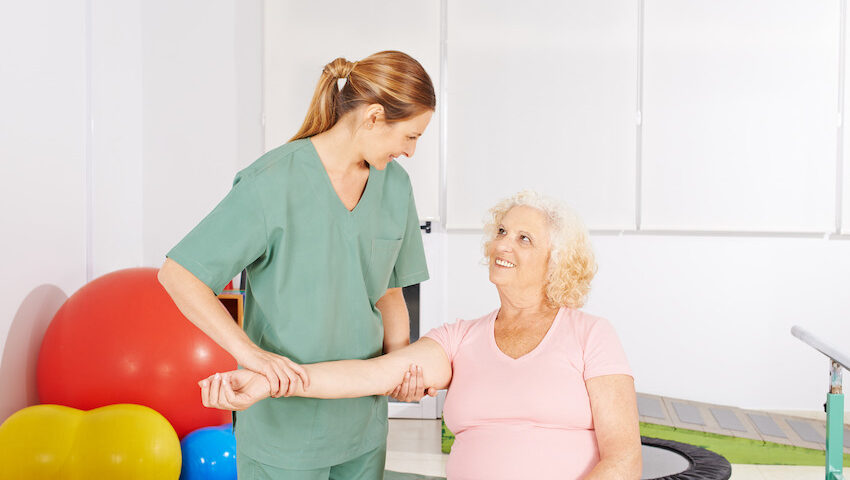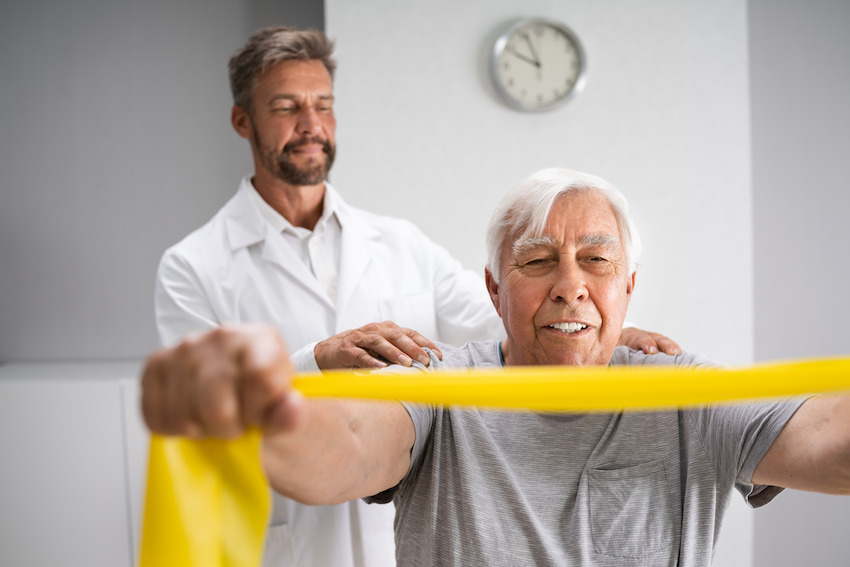
Restore voted Best of Venice for Best Pain Management Clinic – Again!
February 20, 2023
Soaring to New Heights with the Birds of Paragon in the Air Race Classic
June 19, 2023Rotator Cuff Tear Rehabilitation: How to Prepare, What to Expect

A rotator cuff tear is a common injury that occurs when one or more of the muscles or tendons in the shoulder are torn or damaged. The rotator cuff is a group of four muscles and tendons that attach the upper arm bone (humerus) to the shoulder blade (scapula), and it is responsible for supporting and stabilizing the shoulder joint. A rotator cuff tear can cause:
- Pain
- Weakness
- Loss of range of motion
It can also limit your ability to perform daily activities.
What is rotator cuff tear rehabilitation?
Rotator cuff tear rehabilitation is a form of physical therapy that is designed to help you recover from a rotator cuff tear and regain shoulder strength, mobility, and function. Rehabilitation typically begins with a period of rest as well as avoidance of activities that cause pain or discomfort in the shoulder. This may be followed by a range of exercises and stretches that are designed to improve range of motion, strength, and flexibility in the shoulder.
The specific exercises and stretches used in rotator cuff tear rehabilitation will depend on the severity of the tear and your individual goals and needs. Some common exercises and stretches include:
Pendulum stretches
This exercise involves standing and leaning forward, allowing the injured arm to hang down and swing back and forth. This helps to improve range of motion in the shoulder.
Isometric exercises
These exercises involve contracting the muscles in the shoulder without moving the joint. This can help to improve muscle strength and stability.
Resistance exercises
These exercises involve using resistance bands or weights to provide additional resistance to the muscles in the shoulder. This can help to further improve muscle strength and function.
Range of motion exercises
These exercises involve moving the shoulder joint through its full range of motion to help improve flexibility and mobility.
Rotator cuff tear rehabilitation is typically performed under the guidance of a physical therapist, who can provide individualized instruction and guidance to help you safely and effectively progress through your rehabilitation program. Rehabilitation may also involve the use of assistive devices, such as shoulder braces or slings, to help support and protect the shoulder during the healing process.

Is a rotator cuff tear injury permanent?
A rotator cuff tear can be either partial or complete. It can be caused by a sudden injury or by the gradual wear and tear of the shoulder joint. The severity of the tear and the extent of the damage to the shoulder joint will determine the long-term effects of the injury.
In some cases, a rotator cuff tear may be repaired through surgery, which can help to restore function to the shoulder joint. Even with surgery, however, it’s not uncommon for a rotator cuff tear to result in some degree of permanent damage to the shoulder. This may include a loss of range of motion, weakness, or chronic pain.
The best course of treatment for a rotator cuff tear will depend on the individual circumstances of the injury, including the severity of the tear, your age and overall health, and your activity level. Physical therapy and other non-surgical treatment options are often the first course of action, while surgery may be necessary in some cases. It’s important to work closely with a medical professional to determine the most appropriate course of treatment for your specific situation.
In general, rotator cuff tear rehabilitation is an important part of the recovery process for anyone who has experienced a rotator cuff tear. By following a structured rehabilitation program, you can regain strength, mobility, and function in the shoulder, and reduce the risk of future injury.
Find out more about rotator cuff tear rehabilitation
Our skilled physical therapists will develop a customized rotator cuff tear rehab program to meet your needs. We look forward to meeting you. Call (941) 375-3006 for an appointment or contact us online.



